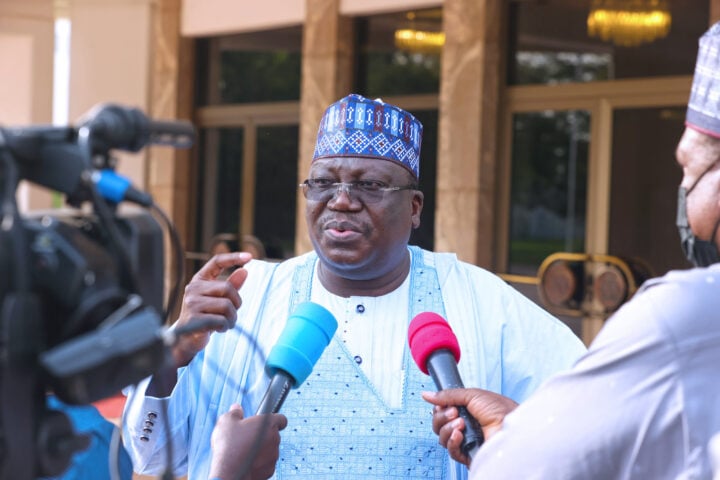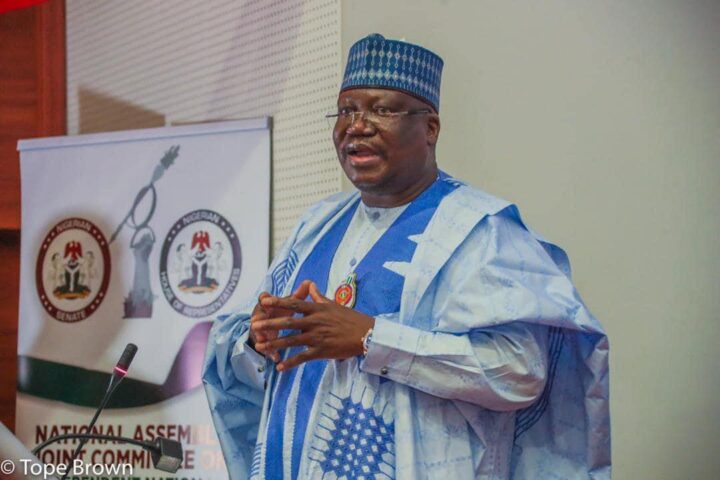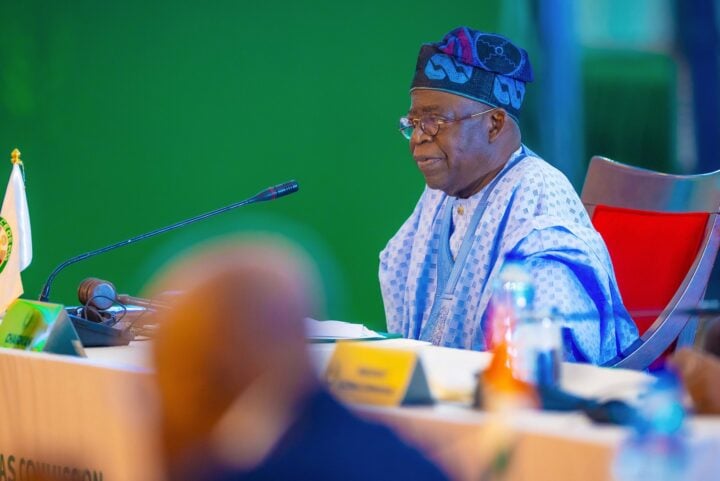Nigeria has more problems with corruption and abuse of office than we realise. And that ignorance or pretence is even more crippling than the corruption that we all worry about.
A problem known is half solved. But when you fail or refuse to get to the roots of a challenge, you will, at best, seek, find, and deploy ill-fitting solutions, which may be ineffectual or outright injurious. This is why Nigeria’s rentier nature gets complicated daily.
The Economic and Financial Crimes Commission (EFCC) currently has its hands full with the investigation of three prominent Nigerians. These three, incidentally beneficiaries of public office, are accused of humongous fraud or attempts at fraud, which remain to be proved.
The country is once again stunned by the audacity and mindlessness of the dramatis personae, who are incidentally, all women! But we are not asking the question as to why misconduct in public office, hitherto seen as a predominantly male tendency, now seems to have crossed the gender border.
Advertisement
In “how Nigeria makes ‘thieves’ of its citizens,” published on May 26, 2022, I wrote: “Following the arrest of the Accountant General of the Federation, Mr Ahmed Idris, (for alleged money laundering and diversion of about N80bn), the Federal Ministry of Finance, Budget, and National Planning appointed Mr Anamekwe Nwabuoku, to oversee the Office of the Accountant-General of the Federation (OAGF).
“Days after the government named him, unconfirmed reports indicated that allegations of corruption against Nwabuoku also existed at the Economic and Financial Crimes Commission (EFCC). The social media post reminded Nigerians that Idris’ predecessor, Mr Jonah Otunla, was also accused of diversion of funds and charged to court. Otunla, however, entered a plea bargain and returned the sum of N6.4b to the Federal Government instead of prosecution. Even if the report about Nwabuoku is untrue, we have uncontroverted evidence that two of the three AGFs between 2011 and date have betrayed the country’s trust. That is enough reason to worry.”
So, abuse of office in Nigeria is almost a matter of course. Even from the list of people under discussion, the abuse or alleged abuse of office transcends gender, age, ethnicity, and religion! Every possible demography in Nigeria is represented in this group, a reality, which should make us contemplate enduring solutions.
Advertisement
So, why do people abuse public office in Nigeria?
One fundamental reason is the perception that it is an avenue to acquire wealth and do so with impunity. Unlike in other places where people aspire to serve in public office, the people are at the back burner in the minds of most of those who aspire and ultimately attain political office in Nigeria.
For instance, without prejudice to her innocence, there is a video wherein the suspended Minister of Humanitarian Affairs and Poverty Alleviation, Dr Betta Edu, testified at a religious gathering about the fulfilment of her craving for a ministerial appointment. So, you wonder, what is the “blessing” in a ministerial appointment?
In societies where democracy works for the people, a call to public office is a considerable sacrifice. It takes a toll on their everyday lives and businesses and, often, leaves them poorer, materially.
Advertisement
But not Nigeria! Here, many of those who gain public office have no other means of livelihood. In cases where some of these people have a second address as Senior Advocate of Nigeria, Dr Muiz Banire would say, they are ready to invest their entire livelihood in securing office, with plans to recoup upon their appointment! This is the manifestation we currently grapple with.
Unfortunately, this wrong perception of the essence of public office doesn’t end with officeholders. Most citizens see public office as a money-spinner – an opportunity for their friends and family members to acquire as much wealth as possible.
It is so bad that if these associates complete their tenures without a dramatic turn in their finances, they become public pariahs. And when people are caught at their malfeasance, those who get the venom from most Nigerians are the greedy ones who aren’t liberal with their illegally acquired resources. Those who democratise the lucre encounter less criticism, and may, in fact, be decked in honours.
For instance, Idris, the former Accountant-General of the Federation, currently under trial for N109bn fraud, was turbaned as the Ajiyan Hausa by the Emir of Daura late last year. He is a man of means, and so, we must worship him! There were also rumours of people coming to Edu’s defence because she is “our daughter,” before President Bola Tinubu suspended her. Nigeria is turned by turn limited, where people only frown at corruption if their family or community doesn’t benefit from its proceeds. We are collaborators in this malaise that is eating our country up.
Advertisement
The moral compass here is at the lowest base of the ethical pyramid. Many Nigerians in private and public offices who hold their stomachs higher than their assigned duties are pointing fingers at Edu because she is the one who has been brought out of the dark rooms of graft where many Nigerians live.
Just think about it; a 1,000-square-metre piece of land in a place known as Banana Island in Lagos goes for about N1.5bn, and people buy it! Nigerians fly private jets and first-class tickets and live essentially, taunting the ordinary citizens daily, even though you have a largely unproductive economy where 63 per cent (and rising) of the people are in multidimensional poverty, 34 per cent of the youth are unemployed, and 20 million children are out of school!
Advertisement
So, where does all this money come from but corruption and crime, which may include anything from money laundering to drug peddling, human or organ trafficking, internet fraud to kidnapping for ransom, and what have you?
But we worship money regardless of how they make it. Traditional rulers, clerics, intellectuals, and whoever bows to the god of money give reference to people who have it. To us, those who make money are smart, while society derides those conscientious and hardworking ones who cannot afford the obscenity of the few who arrive at wealth through dubious means.
Advertisement
The dilemma, though, is the pervasive poverty in Nigeria. Anywhere in the world, sustainable wealth is only by diligent industry in whatever you find your hand to do, but that is a public office in Nigeria. And that is not just in government! It is the same in the private sector, in academia (where some would kill to attain desired offices) and even in religion! Everyone who gets an office in Nigeria takes that office for himself, his family, his religion, and his community. It is a legion of responsibility reflective of that saying by the Yoruba that the lone man of means amid six other poor people is also poor.
We must, however, tackle poverty sustainably before we can hope to deal with corruption and abuse of office. Nigerians now consider access to power as the most effective route to wealth; this is why they are ready to kill, maim or destroy others to attain power in government, banks, churches, mosques, or anywhere such opportunity opens. Poverty is so endemic that those who have access to power become compulsive thieves in the bondage of the fear of returning to poverty. This society must do much more to build the capacity of hardworking Nigerians to live comfortably. The country must provide safety nets to support the dreams of the ordinary Nigerian and enhance their capacity to bring up and train their children in preparation for the future.
Advertisement
Of course, there is a significant place for ensuring that those caught abusing the privileges of office bear the consequences of their misconduct, but as we do that, we must upgrade our processes to reduce human interference in delivering service to the people.
In addition, we must re-evaluate our values and re-orientate Nigerians. We can also consider something like a Proceeds of Crimes Act, which may help us begin to evaluate how graft has overwhelmed our society. These are some of the ways to tackle the poverty of thought, which combines with material poverty, to turn the country into a garden of corruption, where everyone puts self-interest above and beyond the well-being of the entire society.
Adedokun can be reached via @niranadedokun
Views expressed by contributors are strictly personal and not of TheCable.
Add a comment







